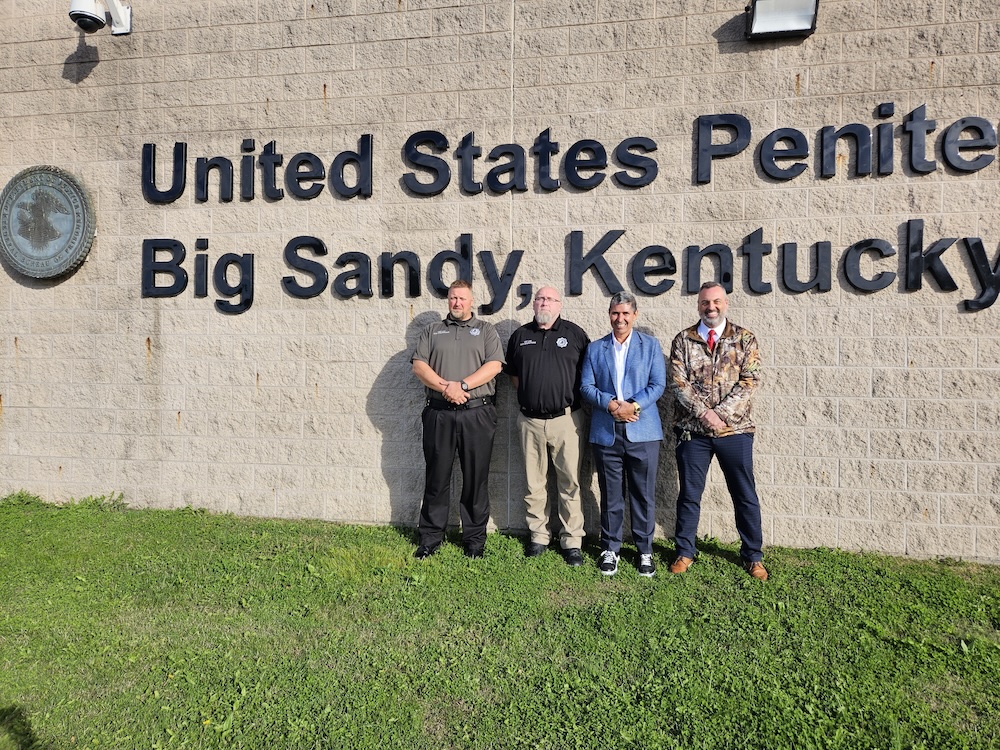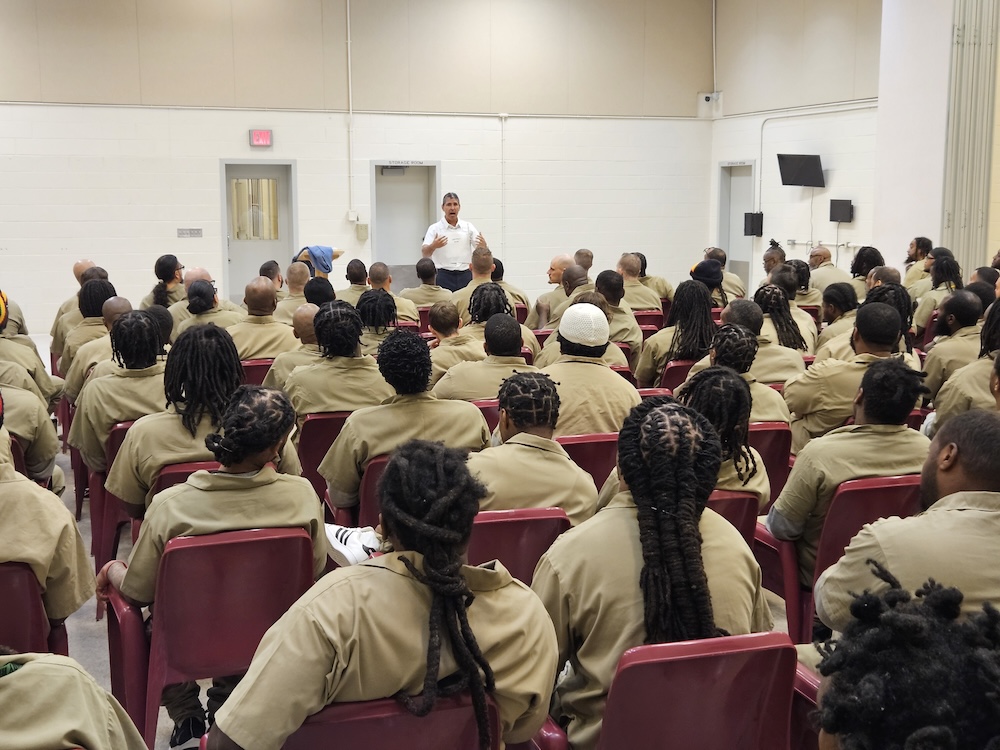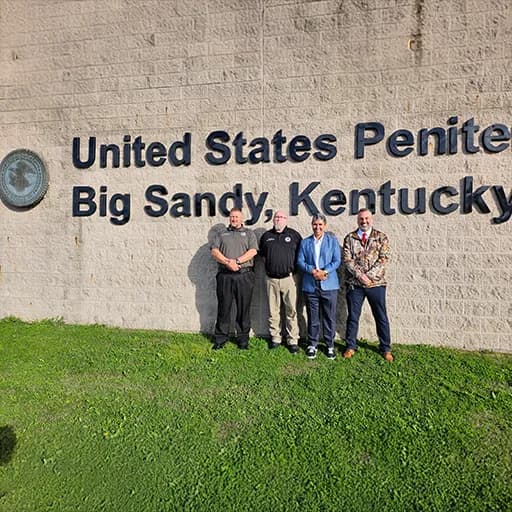
On Tuesday, November 4, 2025, I had the privilege of visiting the United States Penitentiary in Big Sandy, Kentucky. It was part of tour through five Kentucky prisons.
I’m deeply grateful to Regional Director Misty Starr for making this visit possible and for her continued leadership in expanding opportunities for positive programming across the Bureau of Prisons. I also thank Warden David Brewer, Associate Warden Chris Mabe, and Reentry Coordinator Charles Barnett for welcoming me and supporting our efforts to help justice-impacted people prepare for success after prison.
As it turns out, I met Warden Brewer years ago. When we first launched our Preparing for Success after Prison (PSAP) program at USP Atwater in 2016, he had been serving there as an associate warden with Warden Matevousian when we piloted the program.
During our conversation in his conference room, I shared how far our program has grown since those early days. We began with a series of videos and lessons on goal-setting and release planning. Since then, we’ve evolved the program into a national initiative that helps people design self-directed plans for success. It’s part of our broader advocacy campaign to incentivize the pursuit of excellence in prison.
At the core of our message is a simple idea: every individual must live as the CEO of his or her own life. That mindset requires taking responsibility—identifying challenges, creating a plan, setting priorities, and demonstrating through daily action that one is building the tools, tactics, and resources to succeed. When people embrace this approach, they sow the seeds for a life of meaning, relevance, and dignity upon release.

Today, our nonprofit has built a digital platform that allows participants to memorialize their progress. More than 4,000 people across the Bureau of Prisons now use the Prison Professors Profile system to document their growth, earn points for their work, and show why they are extraordinary and compelling. These profiles help people chart a new course—one rooted in accountability, education, and contribution. I encourage every participant to become an ambassador for this message and to continue building a positive record that opens new opportunities for liberty in the future.
At Big Sandy, following the Executive Staff meeting, we walked into a large auditorium for two extended presentations—each lasting roughly two-and-a-half hours. Cumulatively, more than 300 participants attended—about thirty percent of the institution’s population. Their engagement was remarkable. They listened intently, asked thoughtful questions, and expressed genuine interest in building pathways toward reform and self-improvement.
I encouraged everyone to become leaders of change—to work toward reducing violence, drug use, and disciplinary infractions by investing their energy in self-directed release planning. True reform begins with people inside demonstrating that they are preparing for success upon release. When individuals commit to that process, our team can advocate more effectively for policies that expand opportunities to earn freedom through merit.
Between sessions, Warden Brewer and his Executive Staff invited me on a tour of the institution. We stood near the cafeteria during the lunch hour, speaking directly with men who expressed hope and curiosity about the program. I also toured an honor dorm, where residents proudly shared how they were leaving past behaviors behind and focusing on growth, responsibility, and rehabilitation.
The professionalism and cooperation I witnessed from staff, and the respect I received from the incarcerated population, encouraged me. USP Big Sandy demonstrated that even within a high-security environment, a culture of hope and progress can take root when staff and residents work together toward shared goals.
I remain grateful to every staff member who made my visit to USP Big Sandy possible. With continued partnership, we can empower more people in custody to transform their lives and prepare for meaningful contributions to society upon release.

